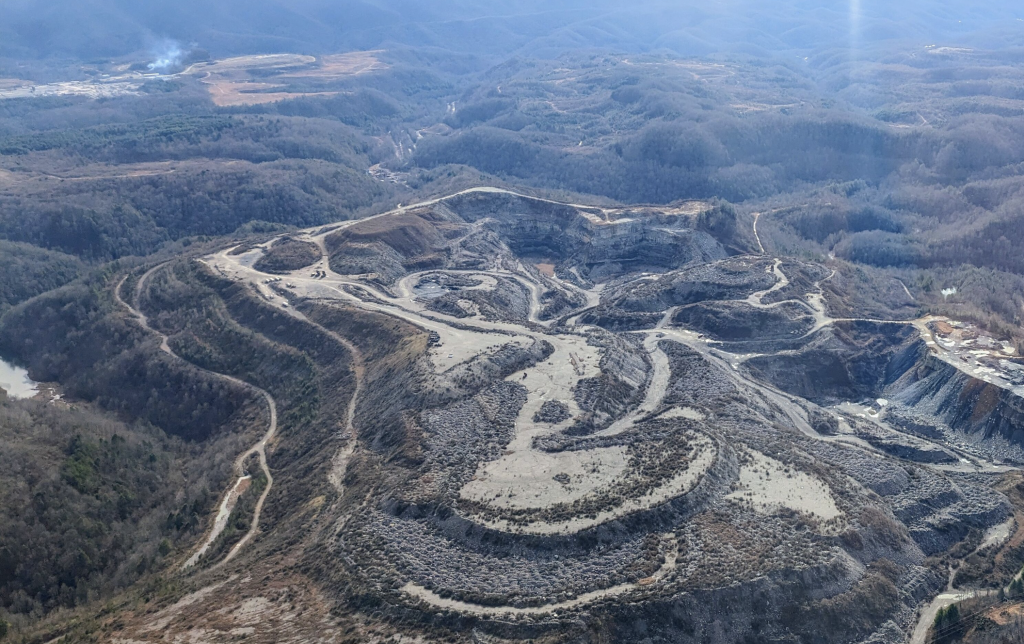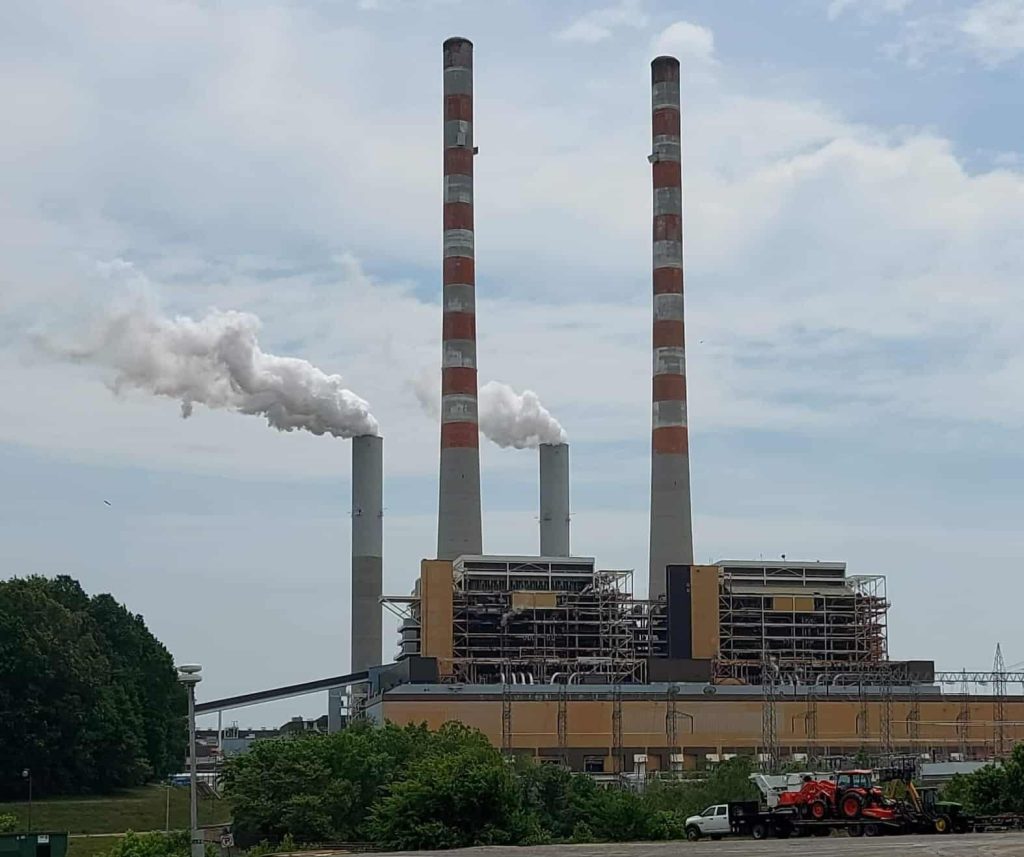Bankrupt coal company cited for releasing ‘sludge’ into West Virginia’s Gauley River watershed
FOR IMMEDIATE RELEASE
April 1, 2025
CONTACT
Dan Radmacher, Media Specialist, (276) 289-1018, dan@appvoices.org
Company run by Richmond-area financier Greg Whirley Jr. has received 113 citations in four years
CHARLESTON, W.Va. — The West Virginia Department of Environmental Protection issued its latest notice of violation against South Fork Coal Company, the bankrupt mining firm operating a 3,600-acre surface mining complex in Greenbrier County, West Virginia, on March 24. The citation was issued for “iron staining and sludge deposits” in Becky Run caused by the company’s Lost Flats #2 Surface Mine. High concentrations of iron can harm aquatic species by damaging gill tissues and smothering streambed habitats. Excessive Iron can also be associated with acid mine drainage, which can contribute to issues with respiration and reproduction, and can lead to death in sensitive species.
Becky Run is a tributary of the South Fork of Cherry River, part of the Gauley River watershed. The Cherry River and its tributaries are pristine brook trout habitat, popular among anglers throughout the region. These waterways are also home to the endangered candy darter, a brilliantly colored fish that has lost around half of its native habitat due to human impacts. The Gauley River watershed includes world-class whitewater, the Gauley River National Recreation Area, Cranberry Wilderness and the Monongahela National Forest, and is a lynchpin of West Virginia’s tourism economy. In 2023, National Park System lands along the Gauley, New and Bluestone rivers brought $96.5 million into the state.
The company, which has frequently missed compliance deadlines in the past, has until April 7 to clean up the iron stains and sludge in Becky Run.
South Fork Coal Company declared bankruptcy on Feb. 7 alongside 10 affiliated companies. All 10 bankrupt entities are run by Richmond-area financier, Greg Whirley Jr.
“Over a hundred violations in just a few years isn’t merely a slip-up — it’s a disturbing pattern that threatens more than just clean water,” said Olivia Miller, Program Director of the West Virginia Highlands Conservancy. “These same streams anchor West Virginia’s outdoor recreation economy, providing a true haven for anglers and whitewater boaters from across the region. We must stand together to put a stop to this assault on our waterways, for the sake of the creatures that live here and for those of us who call these mountains home.”
This is the 113th violation the DEP has issued against South Fork Coal since 2021.
Several other serious infractions have occurred across the company’s operations in recent months. On Jan. 9, the DEP issued a cessation against South Fork Coal for failing to control excessive erosion at the company’s 375-acre Pretty Ridge Surface Mine. On Feb. 16, DEP cited South Fork Coal’s Clearco Prep Plant for releasing black water into Big Clear Creek of the Meadow River — also part of the larger Gauley River watershed.
“This watershed is something we cannot put a price tag on,” said Tyler Cannon, a board member with West Virginia Highlands Conservancy. “In a matter of years, the DEP has knowingly failed to force South Fork Coal to comply with environmental regulations, compromising the security of this invaluable resource. We cannot let a handful of years of negligence threaten the future of this area.”
“Heavy metal concentrations that are found in mining sludge and runoff not only affect the brook trout, our state fish, but also endangered species such as the candy darter,” said Micah Bates, West Virginia State Chair of the Native Fish Coalition. “To take it a step further, people catch and eat the hatchery trout in this watershed, bringing heavy metals and pollutants in direct contact with the general public.”
In January, federal regulators shut down South Fork Coal Company’s Haulroad #2 as a result of the road crossing through the Monongahela National Forest, which is supposed to be closed off to coal mining, preparation and hauling under federal law. In February, the company was successful in reopening the road through an administrative appeal process within the Department of Interior. South Fork Coal is now seeking a special exception to the ban on operating within the national forest, which conservation groups are opposing. The public has until April 21 to submit comments to the Office of Surface Mining Reclamation and Enforcement weighing in on the company’s practice of hauling coal across public lands.
“It is very alarming that regulators are allowing this deeply negligent, bankrupt coal company to violate the ban against mining and associated operations in the national forest,” said Willie Dodson, Coal Impacts Program Manager at Appalachian Voices. “As bad as this situation is, it would be even worse for federal regulators to grant South Fork Coal long-term permission to abuse our public lands in this way. If they do that, what’s to stop them from strip-mining Spruce Knob or dumping sludge into Cranberry Glades?”



